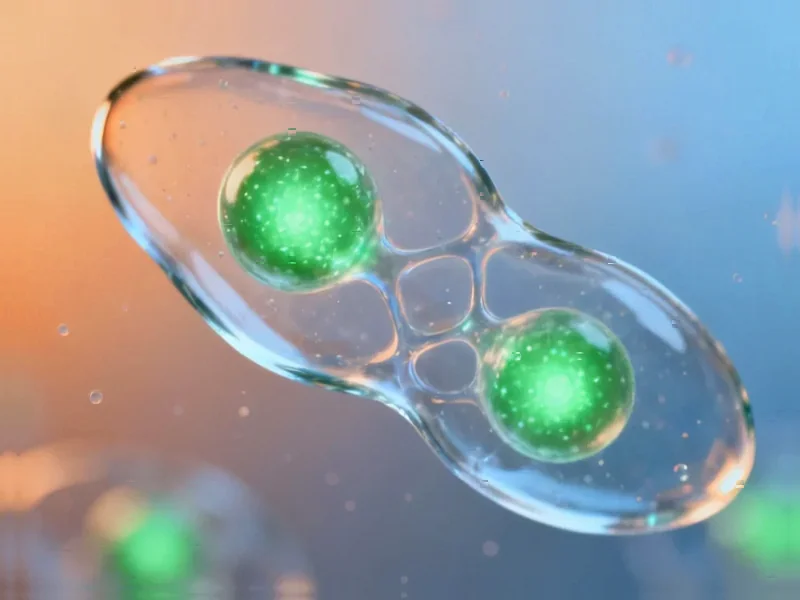The Challenge of Antigen-Low Resistance in CAR T Cell Therapy
Chimeric antigen receptor (CAR) T cell therapy has revolutionized cancer treatment, particularly for hematological malignancies. However, a significant limitation has emerged in clinical practice: the inability of CAR T cells to effectively recognize and eliminate tumor cells expressing low levels of target antigen. This deficiency creates an escape mechanism for cancer cells through antigen downregulation, a phenomenon observed in clinical trials targeting CD22, CD19, and BCMA antigens. The fundamental issue lies in the signaling architecture of CARs compared to native T cell receptors (TCRs), which demonstrates superior sensitivity to low antigen densities., according to industry analysis
Table of Contents
- The Challenge of Antigen-Low Resistance in CAR T Cell Therapy
- Uncovering Signaling Deficits Through Phosphoproteomic Analysis
- The Limitations of Conventional Signaling Enhancement
- Membrane-Tethered SLP-76: A Breakthrough Approach
- Comprehensive Validation Across Multiple Models
- Addressing Safety and Persistence Concerns
- Clinical Implications and Therapeutic Window Considerations
- Future Directions and Clinical Translation
Uncovering Signaling Deficits Through Phosphoproteomic Analysis
Recent phosphoproteomic investigations have revealed critical differences in proximal signaling between CAR and TCR systems. Researchers discovered that CAR architectures with higher activation thresholds exhibit reduced phosphorylation of downstream proximal signaling networks. Specifically, comparative analysis between CD19 CARs with CD28 versus CD8 hinge-transmembrane domains demonstrated significant enrichment of proximal signaling molecules—including LCK, SLP-76, LAT, PKC-θ, and CD3 subunits—in the CD28 H/TM configuration. This finding aligns with established knowledge that TCRs outperform CARs in antigen-low recognition due to enhanced phosphorylation of proximal signaling molecules.
The investigation further identified that multiple components of the LAT/SLP-76 signalosome, along with proteins connecting proximal signaling to cytoskeletal rearrangement, were significantly enriched in CD28 H/TM CAR T cells. Interestingly, some phosphoproteins showed phosphorylation even before activation, suggesting that CAR structure might pre-condition cells for more efficient antigen recognition., according to related news
The Limitations of Conventional Signaling Enhancement
Initial attempts to overcome signaling deficits focused on overexpression of key proximal signaling molecules in CAR T cells. Researchers tested five critical signaling components: LCK, ZAP-70, LAT, SLP-76, and PLCγ1. While overexpression of ZAP-70 and SLP-76 enhanced interleukin-2 production in response to antigen-high targets, this approach failed to improve recognition of antigen-low target cells. This finding highlighted that simply increasing molecular concentration wasn’t sufficient to address the fundamental signaling deficiency., according to industry developments
Membrane-Tethered SLP-76: A Breakthrough Approach
The research team developed an innovative solution by engineering a membrane-tethered version of SLP-76 (MT-SLP-76). This approach addressed the core problem: CARs’ deficiency in recruiting proximal signaling molecules to the immune synapse. By anchoring SLP-76 directly to the cell membrane, the researchers facilitated its engagement and enhanced signaling activity.
The results were striking. Co-expression of MT-SLP-76 with a CD19-4-1BBζ CAR substantially enhanced IL-2 production in response to both CD19-high and CD19-low target cells, outperforming overexpression of native SLP-76 or ZAP-70. Most importantly, MT-SLP-76 significantly improved killing of CD19-low cells while maintaining similar efficacy against antigen-high targets., according to industry reports
Comprehensive Validation Across Multiple Models
The research team conducted extensive testing to validate their approach:
- Antigen Density Response: MT-SLP-76 shifted the antigen density response curve, lowering the threshold for cytokine secretion compared to standard CD19-4-1BBζ CAR
- Platform Generality: The approach enhanced sensitivity for both CD22- and HER2-targeting CAR T cells against antigen-low and antigen-high targets
- In Vivo Efficacy: In clinically relevant models of CD22-low leukemia, MT-SLP-76-overexpressing CD22 CAR T cells mediated sustained tumor eradication where conventional CAR T cells failed
- Expansion Rescue: MT-SLP-76 rescued CAR T cell expansion in vivo, significantly increasing CAR T cell numbers in bone marrow and spleens
Addressing Safety and Persistence Concerns
Enhanced signaling strength raises legitimate concerns about potential overactivation and reduced T cell persistence. The research team conducted rigorous safety assessments:
- In stress test models, CD19-4-1BBζ CAR co-expressed with MT-SLP-76 demonstrated significantly enhanced antitumor activity and survival
- MT-SLP-76 expression did not negatively affect CAR T cell persistence or memory phenotype
- Despite reaching higher peak numbers, MT-SLP-76-enhanced CAR T cells contracted appropriately, similar to CAR-alone conditions
Clinical Implications and Therapeutic Window Considerations
The successful application of MT-SLP-76 in BCMA-targeting CAR T cells against multiple myeloma with low BCMA expression demonstrates broad applicability across disease types. However, researchers caution that enhanced sensitivity requires careful consideration of the therapeutic window, particularly for antigens with low-level expression on normal tissues.
Using a ROR1 CAR model known to cause on-target, off-tumor toxicity, investigators are exploring whether MT-SLP-76 might exacerbate toxicity against normal tissues expressing low antigen levels. This critical safety assessment will help define appropriate clinical applications for this powerful technology.
Future Directions and Clinical Translation
The membrane-tethered SLP-76 approach represents a significant advancement in CAR T cell engineering that addresses a fundamental limitation of current immunotherapies. By enhancing sensitivity to low-antigen tumors while maintaining safety profiles, this strategy could substantially improve outcomes for patients who would otherwise experience treatment failure due to antigen escape., as detailed analysis
The modular nature of this approach—compatible with existing CAR designs—facilitates rapid clinical translation. As the field moves toward combination therapies and more complex engineering approaches, MT-SLP-76 provides a valuable tool for enhancing CAR T cell efficacy across multiple cancer types and target antigens.
Related Articles You May Find Interesting
- Accel Backs Generation Lab’s $11M Seed Round to Pioneer Epigenetic Aging Analyti
- AI Adoption Soars Among Small Businesses for Advertising, Google Executive Revea
- Unlocking Time’s Hidden Patterns: How Quantum Feedback Creates Crystals and Quas
- Redwood Materials Secures $350M to Power AI-Driven Grid Storage Expansion
- Cross-Sector Coalition Urges UK Government to Incorporate Low-Carbon Ammonia in
This article aggregates information from publicly available sources. All trademarks and copyrights belong to their respective owners.
Note: Featured image is for illustrative purposes only and does not represent any specific product, service, or entity mentioned in this article.



